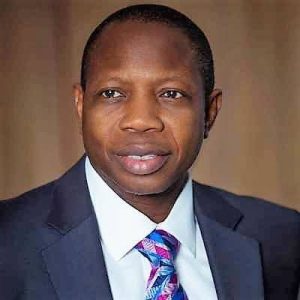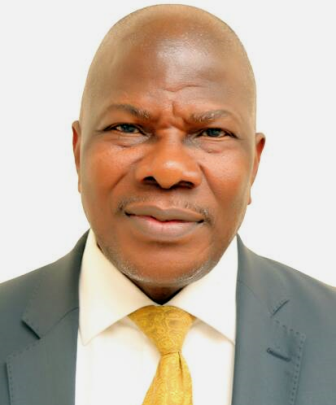2020 has been eaten up by the pandemic, COVID-19. In its wake, we are not sure what meaningful activities can still take place this year. Last year though, the African Insurance Barometer (AIB) successfully carried out a survey of the insurance industry in Africa and came out with a report. With COVID-19 making it look like no one is sure what would happen next, we are continuing to look at the findings of that 2019 survey of the insurance business in Africa. Take a reading…
Close to 60% of interviewees believe that regulation in their African insurance markets is adequate. On the positive side the executives polled emphasise that today’s regulators have better market understanding and maintain
an open and constructive dialogue with insurers to advance the market. In particular the introduction of
risk-based capital requirements is applauded by the players for improving security and confidence in the marketplace.
Secondly, in some markets the regulator is taking actions to curb the notorious undercutting of rates by closely monitoring the market’s development, increasing capital requirements or by setting minimum rates. On the negative side, insurers point out that the enforcement of regulation does not correspond with its wording, that regulators
either lack the expertise, the resources or the political will to enact and control the regulation.
Furthermore, there are complaints that regulation strangles innovation, namely in the case of micro insurance where due to regulatory requirements such a product is no longer commercially viable. The criticism continues that compulsory cessions contribute to close off African markets from foreign competition.
According to the counter argument, these regulatory schemes aim to reduce capital flight. But the risk bearing capacity of the concerned markets is too limited to absorb the risks themselves, while foreign competition might actually be helpful to transfer knowledge and strengthen local risk capacity.

This (2019) year’s cyclone Idiai in March has painfully reminded insurers, clients and obviously the population in Eastern and Southern Africa at large of the devastating natural catastrophe risk in Africa. However, in most
markets awareness of the risk is still low. Insurers point out that demand is limited, as clients underestimate or even neglect the risks.
Those who seek cover are predominately foreign corporations, which buy the protection as part of their group’s risk management requirement abroad. In addition, beyond of South Africa, where the risk has been quite apparent in
recent years, reliable natural catastrophe models are missing too.
Supply is not in abundance as products are either not available or rates are felt to be too high. In light of insufficient demand, the African insurance markets have developed different approaches to provide cover for natural
catastrophe risks. According to interviewees, there are pool solutions such as the African Risk Capacity launched in 2012 and provided by the African Union in combination with international developmental banks, or compulsory schemes such as in North African insurance markets of Morocco or Algeria but also in Zambia, where a share of the property premiums is set aside to provide protection in case a disaster strikes.
Political risk protection continues to remain inadequate in most African markets. Similar to natural catastrophe protection, demand is low. On the one hand, clients underestimate the risk or perceive it as part of the cost for doing business. Overall interviewees point out that Africa has become a safer place where the risk that political hand-overs may translate into unrest has reduced.
Nevertheless, some of the elections in the last 12 months, such as in Zimbabwe or in the DR Congo, have not been without conflict or the potential to erupt in violence. However, if coverage is bought, this is mainly ahead of elections and only by some clients.
Interviewees emphasise that most of these buyers are foreign corporations that purchase cover with international suppliers while domestic clients just retain the risk. Supply is scarce as well. In many African markets, clients encounter difficulties if they seek cover. In addition, the legal framework is not free of ambiguities either. However, interviewees see rising awareness with clients realising that political risks are not a given but a threat one can protect against.

CREDITS: Business Traffic
The lack in local technical skills has never been as apparent as in this year’s research. All interviewees agreed that availability of local talent is inadequate. With Africa’s insurance industry on a road to recovery this lack is strikingly apparent as insurers seek to differentiate themselves through new products and also the use of new technology. However, it is in particular the younger talents that are difficult to recruit – even in populous
countries, like Nigeria, Ghana or Kenya, where in the past access to human resources seemed to be less of an issue.
Overall, a combination of different factors is at play here, which now seems to come to fruition. Demand for talent is rising on several fronts: Firstly, with regard to the need to innovate, insurers aim to leverage new technology, want to reach out to new customer segments, but also have to respond to changing and rising customer expectations.
Secondly, insurers have relied on expats for the more specialist tasks for too long and invested too little attention in education and building their own talent pool. Thirdly, in their fight for talent, insurers are still in competition with other financial services providers and suffer from an image of being less dynamic and offering lower remuneration than some of their industry peers such as the banks.
And finally, many of Africa’s primary insurers are due to undergo a generation change at the top level. Many of these insurers were launched with economic liberalisations in the 1980s and some management teams have successfully stayed at the top ever since. However, now the time has come to pass on the baton, while educated and experienced staff is difficult to attain. That further aggravates the current shortage.
Africa’s insurance markets seem to have stabilised, following a consolidation wave in its recent past. Compared to last year’s survey, the number of executives who predict that Africa’s insurance markets will concentrate more
going forward has declined from 50 % to 33 %. Although no one expects the markets to become less concentrated (4 % last year [2018]).








